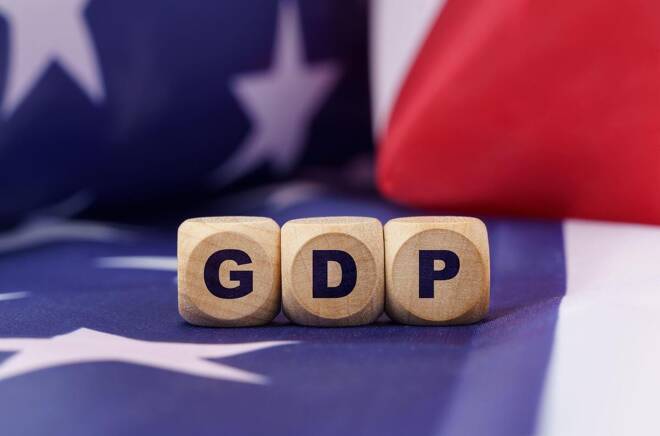Advertisement
Advertisement
Moderate Rise in US Weekly Jobless Claims; First-Quarter GDP Revised Up
By:
Jobless claims in the US saw a moderate increase, while first-quarter GDP growth received an upward revision.
Highlights
- US weekly jobless claims increased moderately.
- First-quarter GDP growth was revised higher.
- The labor market shows resilience despite the rise in jobless claims.
Unemployment Claims Rise, Labor Market Strong
The number of Americans filing new claims for unemployment benefits increased moderately last week, while the previous week’s data was revised significantly downward, indicating ongoing strength in the labor market.
According to the Labor Department, initial claims for state unemployment benefits rose by 4,000 to a seasonally adjusted total of 229,000 for the week ending May 20. The revised data for the previous week showed 17,000 fewer applications than previously reported. Economists surveyed by Reuters had predicted 245,000 claims for the latest week.
Despite a recent surge in claims due to fraudulent applications in Massachusetts, the overall levels remain consistent with a tight labor market. This aligns with other recent data on retail sales, factory production, and business activity, indicating that the economy regained momentum at the beginning of the second quarter.
Resilient Labor Market Despite Interest Rate Increases
The labor market has proven resilient even with the Federal Reserve implementing 500 basis points worth of interest rate increases since March 2022, as part of its efforts to control inflation. In March, there were 1.6 job openings for every unemployed person, well above the range of 1.0-1.2 that suggests a balanced jobs market without excessive inflation.
Employers have been holding onto workers as they continue to face challenges in finding labor following the COVID-19 pandemic. Economists initially expected layoffs to rise as the impact of rate hikes and tighter financial conditions made it more difficult for small businesses to access credit. Many economists now anticipate a mild recession in the second half of the year.
The minutes of the Federal Reserve’s May policy meeting, published on Wednesday, acknowledged the tight labor market but anticipated a further slowdown in employment growth due to a moderation in aggregate demand, partly driven by tighter credit conditions.
Continuing Unemployment Claims Decline, Signaling Stability
Additionally, the number of people receiving benefits after the initial week of aid, which serves as an indicator of hiring, decreased by 5,000 to 1.794 million for the week ending May 13. This data is relevant to the government’s survey of households for calculating May’s unemployment rate. Continuing claims declined between the April and May survey weeks, and the unemployment rate dropped to a 53-year low of 3.4% in April.
The tightness in the labor market has supported wage growth, contributing to consumer spending and overall economic stability.
Commerce Department Confirms Economic Growth Slowdown in First Quarter
In a separate report, the Commerce Department confirmed that economic growth slowed in the first quarter, primarily due to businesses reducing inventories. The inventory drawdown likely resulted from robust consumer spending and businesses reducing stock in anticipation of a possible recession.
The government’s second estimate of first-quarter GDP growth showed a 1.3% annualized rate, revised upward from the previous 1.1% pace reported. The economy expanded at a 2.6% pace in the fourth quarter. Economists had expected no change in the first-quarter GDP growth estimate.
About the Author
James Hyerczykauthor
James Hyerczyk is a U.S. based seasoned technical analyst and educator with over 40 years of experience in market analysis and trading, specializing in chart patterns and price movement. He is the author of two books on technical analysis and has a background in both futures and stock markets.
Advertisement
